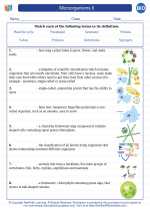Microorganisms II -> chemical reaction
Chemical Reactions
A chemical reaction is a process that involves the rearrangement of the atoms in one or more substances to produce new substances with different properties. It is a fundamental concept in chemistry and is essential for understanding how substances interact with each other.
Chemical reactions can be classified into different types based on the nature of the reactants and products, such as synthesis, decomposition, single displacement, double displacement, and combustion reactions.
During a chemical reaction, chemical bonds are broken and formed, and energy is either absorbed or released. The substances that undergo a chemical reaction are called reactants, and the new substances formed as a result of the reaction are called products.
Chemical reactions can be represented by chemical equations, which show the reactants on the left side and the products on the right side, separated by an arrow. The coefficients in the chemical equation represent the relative amounts of each substance involved in the reaction.
Understanding chemical reactions is important in various fields, including biology, environmental science, and material science, as it helps in explaining processes such as digestion, photosynthesis, and corrosion.
Study Guide: Chemical Reactions
- Define a chemical reaction and explain its significance in chemistry.
- Identify and differentiate between different types of chemical reactions, such as synthesis, decomposition, single displacement, double displacement, and combustion reactions.
- Understand the role of reactants and products in a chemical reaction.
- Explain the concept of chemical equations and how they represent chemical reactions.
- Describe the role of energy in chemical reactions, including exothermic and endothermic reactions.
- Discuss the practical applications of chemical reactions in biology, environmental science, and material science.
By studying chemical reactions, you will gain a better understanding of how substances interact with each other and the underlying principles that govern these interactions.
.◂Biology Worksheets and Study Guides High School. Microorganisms II
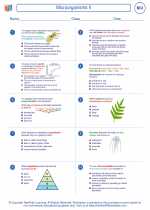
 Worksheet/Answer key
Worksheet/Answer key
 Worksheet/Answer key
Worksheet/Answer key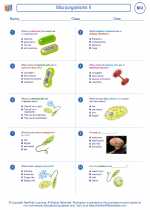
 Vocabulary/Answer key
Vocabulary/Answer key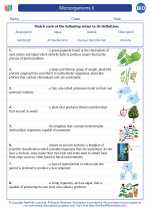
 Vocabulary/Answer key
Vocabulary/Answer key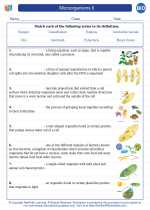
 Vocabulary/Answer key
Vocabulary/Answer key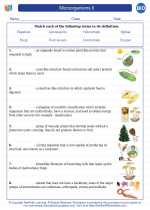
 Vocabulary/Answer key
Vocabulary/Answer key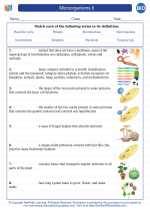
 Vocabulary/Answer key
Vocabulary/Answer key